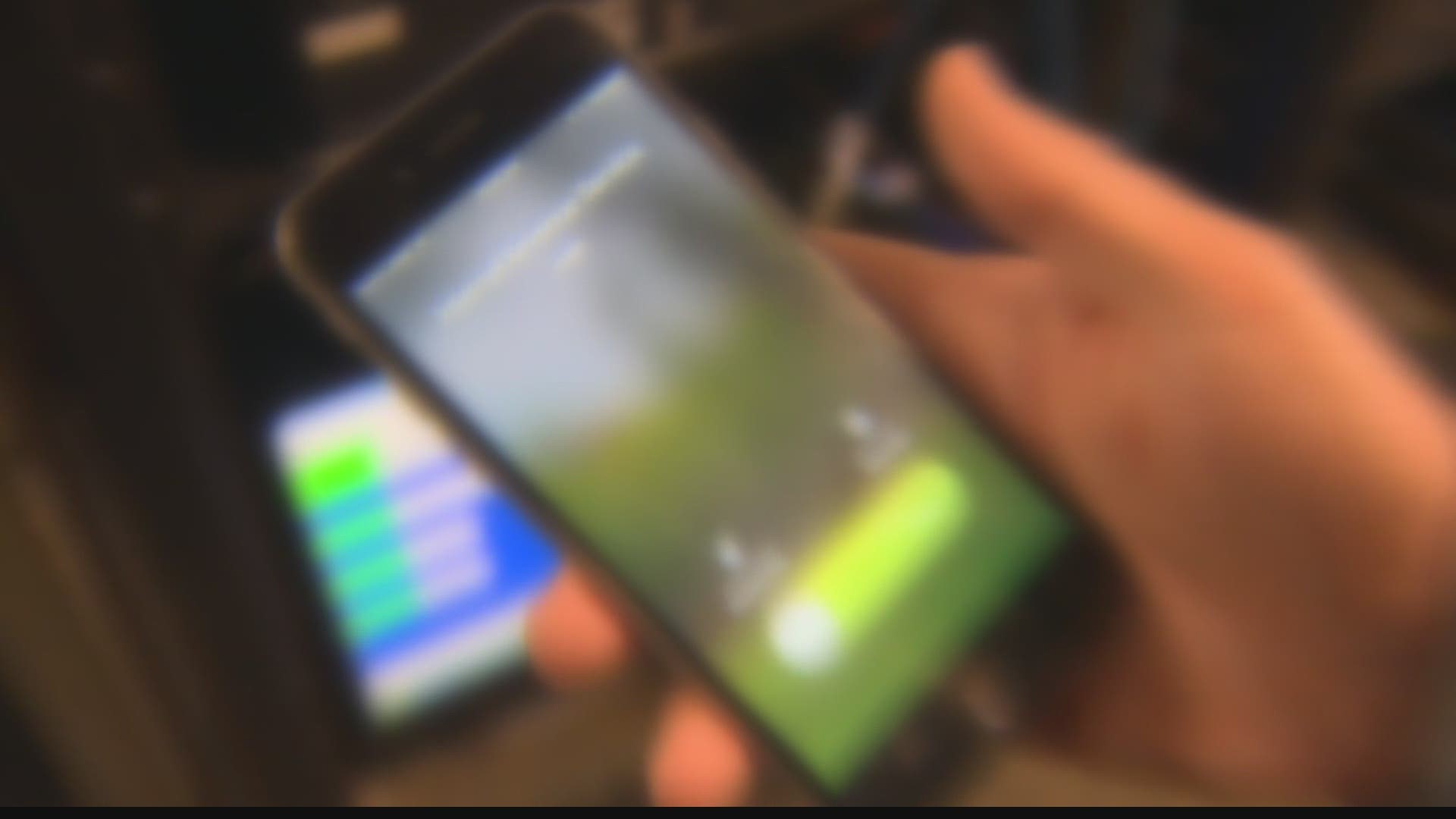ST. LOUIS — Heather Satia is one of the millions of Americans who didn’t get a stimulus payment deposited in the first wave of recipients. Like a lot of us, she could use the help, the sooner, the better.
“It’ll help keep food on the table,” said Satia.
When she got text messages offering to help her get the money faster, or to get more of it, she understood why some might be fooled. Fortunately, Satia wasn’t.
“There was one that said click on this link to update your direct deposit,” she said. Another stated, “Click on this link and you will get an extra $1,500 of the stimulus package.”
Experts said scammers sending text messages like these hope the recipients are desperate enough to try it.
“They've tracked over 20,000 calls related to COVID-19 complaints,” said Tom Edwards, special agent in charge at the Secret Service office in San Francisco. “Almost half of those are specific to fraud attempts.”
“They're all cons. They're just trying to get you to provide personal data so they can get that stimulus money directed to them and you won't get a dime,” he added.
The need for cash is just strong enough that some of those schemes work.
“So far, they estimate around $15 million in fraud, an average of $559 per person,” said Edwards.
The most common scams the Secret Service has noted so far are offers to get money early or get extra money by filling out a survey. There also have been calls that are meant to look like they come from your bank, asking to verify details so that the stimulus check is processed correctly.
Edwards said they’ve also seen emails that claim to be from the U.S. Treasury or IRS with links to websites that ask for personal information.
New tricks to watch out for
Lori Hodges is vice president of risk services in North America for Visa. She said the phone calls can be very convincing, even showing your bank’s name on the screen.
“They're recording the hold messaging or the hold music that the bank or credit union would be playing when the cardholder calls them,” said Hodges.
“It could be something like, 'I'm trying to make sure your stimulus check is deposited and I want to make sure you can pay your bills or credit card bills. Please send me that one-time passcode I just sent you.'”
If you get a call from someone who knows details from your bank or tax returns, that still doesn’t mean they’re the real deal. Edwards said scammers can get access to those details and more.
“They've been able to build profiles on each one of us. If they know a certain group of people are banking with a certain institution, and they can correlate phone numbers with them, they'll target them as a group.”
“Always go to the government source. The IRS.gov site has a ton of information on how you can collect your stimulus payment,” he added.
Satia knew to be skeptical when the text messages arrived.
“I knew right off the bat this didn't sound right, so I checked with the people who did my taxes and went onto the website and checked myself,” she said.
That means she’s still waiting, but she can rest easier knowing she didn’t give her information away to a scammer.
“I’m able to still work, otherwise it would be a lot harder than it is. I know there are people out there in a lot harder situations than me,” she said.
How to report a COVID-19 scam
Experts recommend that people who encounter stimulus check scams call local police, the FBI and the FTC. Even if you didn’t fall for the trick, the same scammers could be targeting more vulnerable populations that are less likely to know why sharing their data is a bad idea, said Edwards.
On Wednesday, the Department of Justice announced that it seized website domains, including some that pretended to be associated with public health organizations or government agencies, in an effort to stop scams that took advantage of COVID-19 concerns.
The DOJ is asking consumers to report COVID-19-related fraud to the National Center for Disaster Fraud hotline at 1-866-720-5721 or email disaster@leo.gov. You can also submit information about cyber scams to the FBI’s Internet Crime Complaint Center.
The FTC accepts fraud reports to its online Complaint Assistant website. Report websites, calls and texts that impersonate a government agency in the “Rip-offs and Imposter Scams” category. Imposter scams were the most common fraud report the FTC received in the first quarter of 2020.

